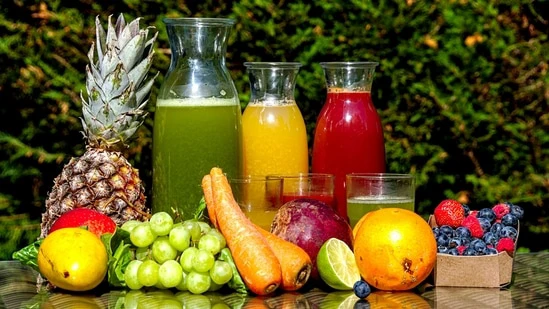In today’s health-conscious world, many people assume that fruit juices are a quick and healthy way to get their daily vitamins. From fresh-squeezed juice to tetra packs, it often seems like a convenient choice to boost nutrition. However, not all fruit-based drinks are created equal.
Dr Shubham Vatsya, gastroenterologist and hepatologist, Fortis Hospital, Vasant Kunj, Delhi, shares in his October 13 Instagram post why what appears to be a healthy choice may actually pose hidden risks.
Are fruit juices really healthy?
“It may sound harsh, but fruit juices are harmful,” warns Dr Shubham. “Start calling them ‘sugar syrups’ and completely stop giving them if you think fruit juice is healthy for your child, whether it’s fresh or tetra pack. These are not substitutes for whole fruit.”
Dr Vatsya explains that when you make juice from 3-4 oranges, the fibre is lost, and the fructose is absorbed directly into the bloodstream. “This causes insulin spikes, sugar crashes, and depending on the sugar content of the fruit juice, it can be extremely harmful,” he adds.
He further cautions that regular consumption of fruit juices can increase the risk of childhood obesity, type 2 diabetes, and dental cavities. “If you want to adopt a healthier approach, instead of relying on fruit juice, give your child whole fruit,” Dr Vatsya advises.
What science says
According to a 2024 study published in Food Structure, the level of processing in fruit juices and beverages (FJBs) impacts health. It finds that minimally or moderately processed juices retain more nutrients and offer greater health benefits, while highly processed juices and beverages, which are stripped of fibre and contain concentrated sugars, are associated with higher risks of obesity, metabolic disorders, and other health issues.
